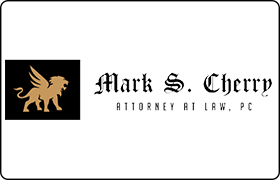Fort Dix Bankruptcy Lawyer, New Jersey
Sponsored Law Firm
-
 x
x

Click For More Info:
-
Mark Cherry Law
385 Kings Highway North Suite 101 Cherry Hill, NJ 08034» view mapBankruptcy & Debt Where Every Client Matters
We want our clients to be confident and secure knowing we are a law firm ready to take on the fight and challenge with them.
800-824-6431
Includes: Bankruptcy Litigation, Commercial Bankruptcy, Consumer Bankruptcy, Dissolution
Mark Kriegel
✓ VERIFIEDBankruptcy, Litigation, Insurance, Wills & Probate, Business Organization
Representing clients in bankruptcy, insurance, civil litigation and small business formation and operating agreements.
Robert H. Johnson
✓ VERIFIEDBankruptcy & Debt, Foreclosure, Bankruptcy
Robert H. Johnson has spent his career representing clients in U.S. Bankruptcy Court and New Jersey insolvency proceedings. Prior to founding this fi... (more)
Mary Ellen Rose
Corporate, Business Organization, Banking & Finance, Bankruptcy
Status: In Good Standing
Peter S. Bejsiuk
Corporate, Banking & Finance, Bankruptcy Litigation, Bankruptcy
Status: In Good Standing
Drew A. Molotsky
Landlord-Tenant, Foreclosure, Divorce & Family Law, Bankruptcy
Status: In Good Standing
FREE CONSULTATION
CONTACT Mark Cherry Cherry Hill, NJ
Mark Cherry Cherry Hill, NJ AboutMark Cherry Law
AboutMark Cherry Law Practice AreasSpecializations
Practice AreasSpecializations

